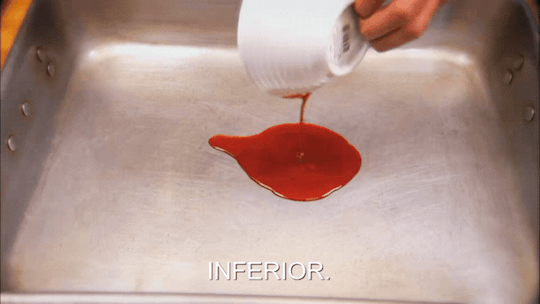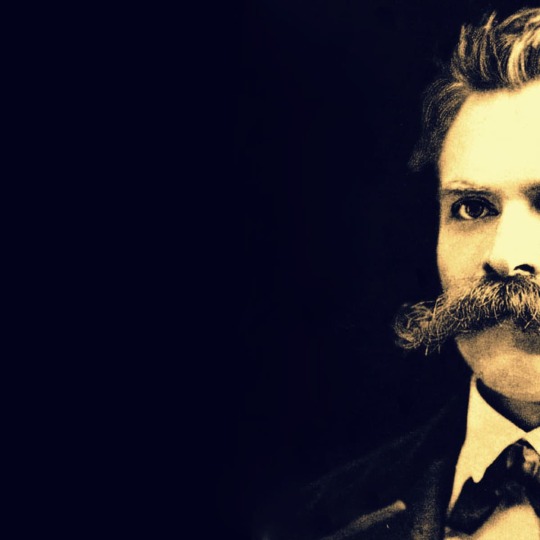#Inferior
Explore tagged Tumblr posts
Text


Having more drinks tonight!! Send me asks <3
91 notes
·
View notes
Note
umm... this guy is holding polls to... kill people... and nobody's saying anything... this is... kinda problematic... can you post an apology before i have to tell my oomfs to unfollow :/
uhm... don't like don't follow??? simple as that??? if u have an issue with what I do on MY blog, uhm, maybe you should follow someone else??? i know many unproblematic bloggers who im sure would cater more to ur pathetic "sensibilities". wokie.
19 notes
·
View notes
Text
This dude has been whistling instagram reels music for the past 30 minutes. Do I tell him to stop like hes talented idk dude. Like i couldnt whistle for 30 minutes if i wanted to its. Not fair.
8 notes
·
View notes
Text
You survive, but maybe not quite as intact as you were before.
Steven Austad
Inferior - Angela Saini
#books#book#read#reader#reading#quotes#quote#am reading#booklr#book blog#steven austad#inferior#angela saini
6 notes
·
View notes
Text
#Osho#ambition#ambitiousness#ego#inferiority complex#inferior#love#awareness#consciousness#spiritual awakening#spirituality#spiritual#awakening#psychology#wisdom#video
2 notes
·
View notes
Note
Hi, this will sound strange but can the inferior function leak into consciousness when one is dreaming ? I'm an INFP and usually see Te-doms as being loud rushed and so on but I had this dream where I was behaving more or less like one and in the dream my actions while under the influence of Te made sense I was like hell yeah it makes sense as to why Te-doms are always on top of things always solving problems and such that when I woke up their actions made a lot of sense. Thank you.
Do you know who Sigmund Freud and Carl Jung are? Freud is widely considered the founding father of psychology, and Jung was his mentee. The two of them developed the first rigorous methods of dream analysis that are still used by some therapists today. Freud wrote the first authoritative treatise about dreams called The Interpretation of Dreams. In it, he famously said:
"The interpretation of dreams is the royal road to a knowledge of the unconscious activities of the mind."
Freud made a distinction between manifest and latent content of dreams. The manifest content is the literal images of the dream, while the latent content is the symbolic meaning of the images. Dreams have symbolic meaning because they are actually expressions of unconscious activities.
Unconscious activities deal with darker instincts, thoughts, feelings, emotions, desires, and ideas that are too psychologically disturbing to confront when awake. Though unconscious, these activities still have a negative influence in waking life, so it is important to become more conscious of them in order to mitigate those negative effects. This is easier said than done because the conscious mind seeks to avoid disturbance at all costs.
Enter dreams. Dreams occur in a mental space between the unconscious and consciousness, so they are the perfect vehicle for transmitting messages. Since the content of unconscious activities can be disturbing, dreams disguise the content in symbols in order to make it more palatable and easier to confront and accept. The process of interpreting the symbols in dreams allows people to arrive at deeper truths about themselves.
Freud understood dreams as a form of wish fulfillment. He postulated that human beings had a great many desires, but those desires often conflicted with each other or were deemed unacceptable by society. Thus, dark and taboo desires had to be repressed and kept unconscious.
However, repressed desires don't just disappear and they might even become stronger the harder they are repressed, to the point of creating anxiety or neurosis in waking life. The pent up energy from repressed desires has to go somewhere, so it eventually influences dreaming. Playing out dark/taboo desires through the events and stories of dreams is a safer way of handling them. Freud believed that dream interpretation was a good way of getting to the bottom of what was actually troubling people.
Eventually, Jung broke with Freud because he believed that Freud's ideas were too narrow in scope. Freud was famously focused on understanding repressed sexual desires and fixations (because of his own repressed desires and the fact that many of his clients were female and had suffered some form of sexual abuse in early life), but Jung believed that there was much more to mental life than sex and taboos. He developed dream analysis in a somewhat different direction. While he generally agreed that dreams were about wish fulfillment, he was able to paint a much broader picture of what a "wish" could be.
Dreams might provide some clues about the current state of your life, e.g., whether you are generally happy, sad, anxious, yearning, etc. In the hustle and bustle of daily life, people often neglect their own well-being, so dreams provide an opportunity to check in with oneself.
Dreams might provide insight into a challenge or problem you're facing. Ever heard the phrase "sleep on it"? When you're dreaming, the brain's executive functioning is switched off, which allows your mental processes to operate more freely and thus more creatively. Dreams can explore, connect, and synthesize information for you, which might help you come up with better solutions. This fits with current neurological dream research that indicates the brain uses sleep to clean up and consolidate information.
Dreams might provide wisdom by connecting you to a larger pool of knowledge you didn't know you possessed. Jung was an exceptionally well-read person. He studied the stories, myths, and religious practices of many different cultures, western and eastern, and was astounded to find common recurring patterns, which he distilled into a concept called archetypes. Dreams are often full of archetypal images. This led him to postulate the existence of the collective unconscious, a storehouse of information that is genetically transmitted to every member of a species. Ancient archetypal patterns lend dreams a narrative structure that makes it easier to decipher their meaning.
Dreams might signal a need for compensation or aspiration. As I've explained in the study guides, normal personality development is "uneven". This creates an underlying sense of lack or missing something, which opens a door to developing your potential.
In the process of healthy personality development, certain functions must be given more power and control. However, the side effect of this is that their opposite functions get repressed and left to exist in an infantile state, operating more unconsciously. When the imbalance between opposing functions becomes too extreme, the pent up energy of repressed functions can influence us in unpredictable ways. One way is through inferior grip, which is an unconscious and desperate attempt to right the imbalance. Another way is through dreams, fantasy, and wish fulfillment.
Your dream might be related to people or someone you've recently met that you feel drawn to because of their Te strengths. Or your dream might signal "type envy", which is negative, because it implies low self-esteem, deep-seated self-hatred, or a dark desire to destroy your true self and become something false (a manifestation of Te grip). Or your dream might indicate compensation for personality flaws, which could be positive if it led to change and improvement. Or your dream might indicate an aspiration to realize more of your potential, in terms of being more ambitious or striving for more challenging goals, which could be positive or negative depending on how you approach it.
While someone trained in dream analysis can help you interpret your dreams, at the end of the day, only you can confirm the underlying truth of those interpretations by taking the bigger picture of your life into account. Nobody can access your full experience except you. Examine the notable thoughts/feelings you've had about Te and the encounters you've had with Te in waking life. How do the images and emotions in your dream connect to those experiences? Because dreams often seem random at first, it helps to contextualize them by connecting them to waking life or reflecting on what aspects of waking life are provoking you to focus on Te. With added context, it's easier to discover the most truthful interpretation.
24 notes
·
View notes
Text
"Collectivity is practically always shadowy, always inferior, because the more people there are together, the more they become inferior."
— C.G. Jung, 18 January 1939
9 notes
·
View notes
Text
Women are wanted as wives and girlfriends but not as daughters.
-Mitu Khurana
Inferior - Angela Saini
#books#book#read#reader#reading#quotes#quote#am reading#booklr#book blog#inferior#angela saini#mitu khurana
6 notes
·
View notes
Text
To feel them all stilled around him into silence, his pleasure, yes. White flame bright and trembling.
And perhaps it is just a delusion. Fantasy of making them feel as inferior as they try to make him. He doesn’t want after all for others to be poor, doesn’t even want to be rich. No. He only wants what he has always wanted: to be right, to be once and for all proven right... And it was, wasn’t it. To feel for a time his own untouchable righteousness, supreme command, the Olympian, to feel them all stilled around him into silence, his pleasure, yes. White flame bright and trembling.
— Sally Rooney, Intermezzo: A Novel (Farrar, Straus and Giroux, September 24, 2024)
2 notes
·
View notes
Text





[GONNA GRILL THESE UP. SO YOU PUT A LITTLE COLOR, AND INFERIOR. HOLD THAT IRON. INFERIOR. GOTTA HAVE BEER IN THERE. THEN WE GRAB OUR RIBS.]
#s12e04 grillin' and smokin'#guy fieri#guyfieri#diners drive-ins and dives#gonna grill#little color#inferior#iron#gotta#beer#ribs
8 notes
·
View notes
Text
I don't think I'll ever get over the absolute sass and snark 2 primarily robotic alien species had against each other in Doctor Who.
You know the scene...season 2 episode 13...
Honestly they should have given us more of that.
Why didn't they give us more of that???
#random thought#doctorwho#tenth doctor#daleks vs cybermen#dalek sass#cybermen be throwing shade#dalek really said: this is no war - its pest control#cybermen declared: its obvious they have no concept of ✨️elegance✨️#INFERIOR#robitic aliens#they don't get along at ALL#i love this 🤣🤣🤣#wish this kind of interaction between the two had happened a few more times#the enemy of my enemy is ignored - lowkey mentality#cuz neither saw humans as a threat
8 notes
·
View notes
Text
Anon wrote: Hello MBTI Notes, I am INTJ F 35. I have read through your blogs and its very very helpful.
Can you please explain how in general developed INTJ will look like? I have gone through INTJ ego development but if you can explain bit more specially of Se part, it will be helpful. I really hope I am not asking too much here.. and troubling you. Reason I am asking this question is, I feel my Se is coming out in form of good taste in asthetics, perfumes, styling etc. But, I'm not very athletic or sport loving person.
And most important, people perceive me as low energy person. I'm healthy person and do not face any issue with energy level as such. But in social setups, I have quite damenor. I don't feel too excited or too shocked easily. It takes really enormous deal of things to take out that level of emotions in me .
Just want to confirm my understanding of inferior Se. Thanks in advance!
--------------------
You seem to be missing and misunderstanding some important points. Firstly, everyone is a unique example of their type and uses their functional stack in their own unique ways. Therefore, unless you possess a working crystal ball, you cannot know how your personality development will turn out in the future, assuming you succeed in realizing its fuller potential. This is not something someone can just tell you, teach you, or explain to you, as that would actually take you away from individuation. It is something you must discover on your own, as you journey through life in your own way.
Secondly, as explained in the study guides, there are important reasons for functions to be arranged in a stack and developed in a particular order. Trying to develop the inferior function is generally a bad idea as long as the functions above it remain underdeveloped.
Imagine you're learning to swim in a giant body of water that goes from very shallow at the coast to very deep at the center. The dominant function lies in the shallow waters, so it's easy to see it clearly and get to it without any danger. But the inferior function lies at the deepest point, so what would happen if you just decided to dive into the water there, without having learned to handle that depth? Best case scenario, you'd tread water (your development stalls). Worse case scenario, you'd drown (lose yourself in inferior grip). Either way, you'd be no closer to actually accessing that inferior function sitting down there at the greatest depths.
Since I have witnessed many a person "drown" because they got too far ahead of themselves, I don't discuss inferior function development unless a person can prove to me beyond a shadow of a doubt that they are genuinely ready for it psychologically. Review the paragraph you wrote about your demeanor, energy, emotions, etc. There is compelling evidence that Fi development is inadequate. By association (since functions work in dyads), Te is also implicated.
When your middle functions remain underdeveloped, your understanding of Se cannot be anything but extremely superficial, in exactly the way you described. Continue to develop your middle functions and it should gradually and naturally allow you to have more and more access to the inferior function in due time. As far as I can tell, inferior function development is not something you purposely need to attend to at this point. If you feel inexplicably compelled to do it, it would be important to examine why, as there might be a deeper issue at work.
11 notes
·
View notes
Text
We're good at what the brain allows us to be good at, and as we become good at something, our brain changes to enable that.
Paul Matthews
Inferior - Angela Saini
#books#book#read#reader#reading#quotes#quote#am reading#booklr#book blog#inferior#angela saini#paul matthews
2 notes
·
View notes
Text

«La otra idiosincrasia de los filósofos no es menos peligrosa: consiste en confundir lo último y lo primero. Ponen al comienzo, como comienzo, lo que viene al final —¡por desgracia!, ¡pues no debería siquiera venir!—, los “conceptos supremos”, es decir los conceptos más generales, los más vacíos, el último humo de la realidad que se evapora. Una vez más esto es sólo expresión de su modo de venerar: a lo superior no le es lícito provenir de lo inferior, no le es lícito provenir de nada... Moraleja: todo lo que es de primer rango tiene que ser causa sui [causa de sí mismo]. El hecho de proceder de algo distinto es considerado como una objeción, como algo que pone en entredicho el valor. Todos los valores supremos son de primer rango, ninguno de los conceptos supremos, lo existente, lo incondicionado, lo bueno, lo verdadero, lo perfecto —ninguno de ellos puede haber devenido, por consiguiente tiene que ser causa sui. Mas ninguna de esas cosas puede ser tampoco desigual de otra, no puede estar en contradicción consigo misma... Con esto tienden los filósofos su estupendo concepto “Dios”... Lo último, lo más tenue, lo más vacío es puesto como lo primero, como causa en sí, como ens realissimun [ente realísimo]... ¡Que la humanidad haya tenido que tomar en serio las dolencias cerebrales de unos enfermos tejedores de telarañas! —¡Y lo ha pagado caro!...»
Friedrich Nietzsche: Crepúsculo de los ídolos. Alianza Editorial, págs. 53-54. Madrid, 1998.
TGO
@bocadosdefilosofia
@dias-de-la-ira-1
#nietzsche#friedrich nietzsche#el crepúsculo de los ídolos#filósofos#filosofía#idiosincrasia#idiosincrasia de los filósofos#nada#valor#valores#superior#inferior#concepto#conceptos#conceptos generales#conceptos supremos#causa sui#causa de sí mismo#ens realissimun#ente realísimo#dios#concepto vacío#nihilismo#teo gómez otero
3 notes
·
View notes

